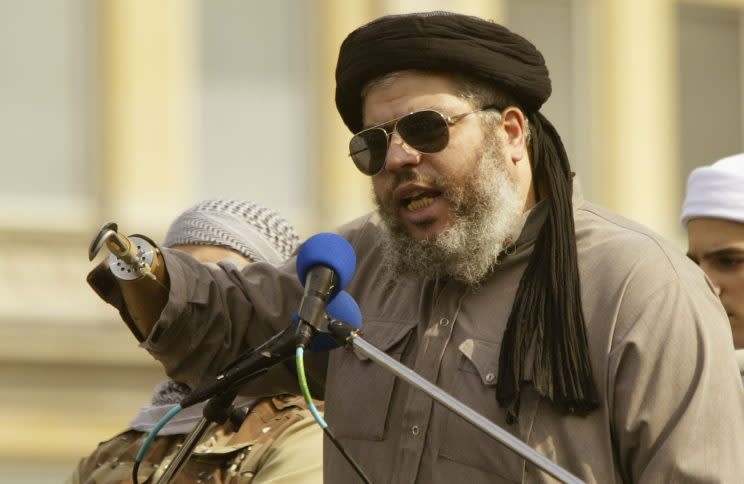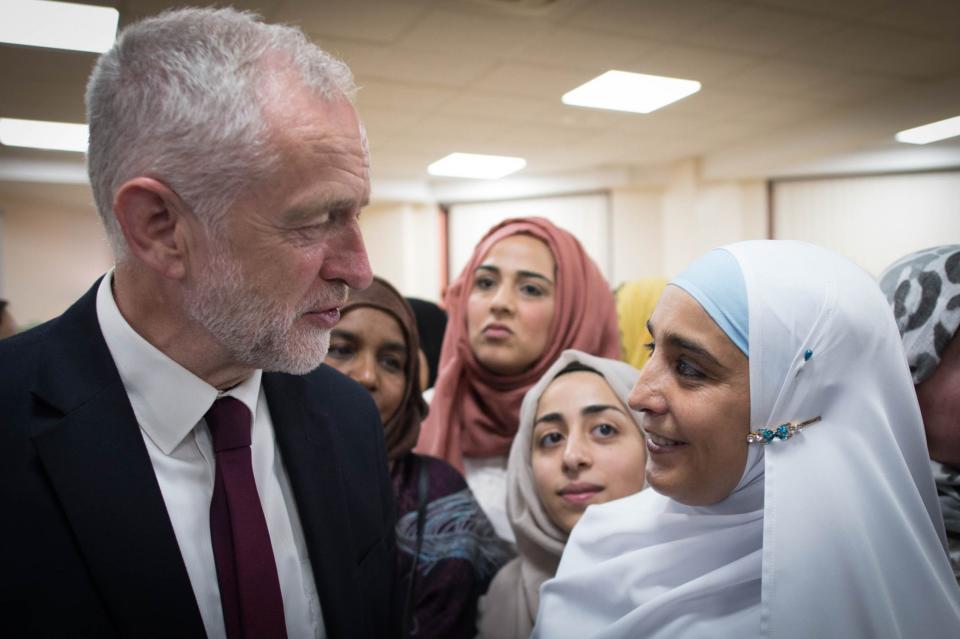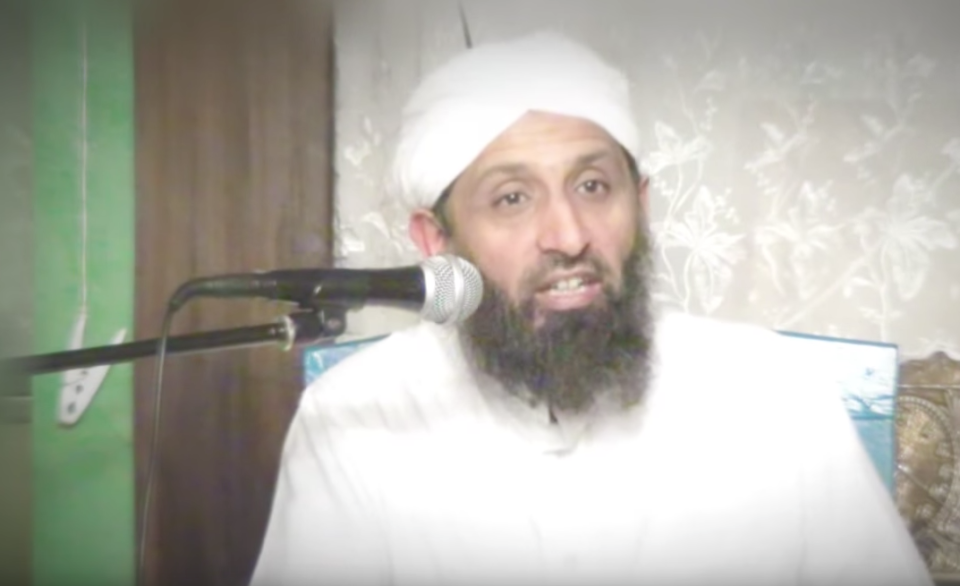How Finsbury Park Mosque transformed itself from hotbed of radical Islamism to award-winning centre fighting extremism

One man has been killed and 10 injured after a white van ploughed into worshippers outside the Muslim Welfare House on Seven Sisters Road.
The attack took place just a stone’s throw from The Finsbury Park Mosque, once Britain’s most notorious Muslim place of worship.
Ten years ago, the mosque was most closely associated with the radical Islamism personified by the Egyptian cleric Abu Hamza, but it has since transformed itself into a place of worship that has won awards for rooting out extremism and become a key part of the community.
Early reports on Sunday night suggested the attack had taken place outside the mosque. And in widely condemned comments, the far-right activist Tommy Robinson tweeted that the mosque “has a long history of creating terrorists and radical jihadists”.
The mosque, in north London, has said it was “horrified” by the attack in which a man drove into a group of Muslims, injuring 10.
How did Finsbury Park become linked to extremism?
More than a decade ago, the Finsbury Park Mosque had become known as “haven” for Islamist extremism in the UK.
Abu Hamza, the Egyptian hate preacher, was imam at the mosque from 1997 until 2003, but was eventually removed after being suspended in 2002.

The radical cleric, who was known for having a hook for a hand, was charged with 16 offences of inciting violence and racial hatred and was sentenced to seven years’ imprisonment in 2006.
In 2012, he was extradited to the US where was found guilty of 11 terrorism charges and sentenced to life in prison without the possibility of parole.
In 2002, the Guardian reported that weapons training had taken place in the mosque. Al Qaeda fighters such as Richard Reid and Zacarias Moussaoui attended the mosque.
MORE: Theresa May to hold emergency meeting as Sadiq Khan decries ‘horrific terrorist attack’ at Finsbury Park mosque The Telegraph
MORE: Witness describes Finsbury Park mosque attack
How were extremists expelled?
The mosque was raided and shut down by police in 2003, and Hamza was removed.
Since 2005 it has been run with a board of trustees supported by the Muslim Association of Britain (MAB). It launched promising “new imams and a new ethos”.
In November 2014, it was given a Visible Quality Mark by national body Community Matters for stamping out extremism.

At the time, Labour leader Jeremy Corbyn, who is MP for Islington North, congratulated the mosque’s achievements.
“Your hard work and good results that are so valuable within our community deserve this wider recognition,” he said.
“It can be tough for charities in this climate, yet despite that you have been able to demonstrate high standards in all areas across your organisation.”
What is it like today?
The mosque has been rightly celebrated for turning its fortunes around, and expelling extremist elements.
Earlier this year it won an apology and damages from Thomson Reuters after its database incorrectly connected the mosque to terrorism and shut down its account.
The information was based on outdated information and old press reports, the High Court heard. It agreed to pay £10,000 in damages plus legal costs.
In a statement, the Finsbury Park Mosque said condemned the “heinous” terrorist attack.
“This is a callous terrorist attack, which coincides with the murdered MP, Jo Cox anniversary,” it said.
Mohammed Kozbar, the chairman of the mosque described the incident as “a cowardly attack which is no different than the attacks in Manchester and London.
“Our community is in shock, our thought and prayer with those who have been effected by this,” he added.
The mosque was awarded a Visible Quality Mark in 2014 – only the third time the award has gone to a faith organisation. It was recognised for its work in the community – offering youth and welfare services, IT courses and surgeries for MPs.
Richard Watts, leader of Islington Council at the time, said: “FPM is a key part of the Islington community and an important local centre.
“We’re very pleased the mosque has won this quality mark, which highlights the mosque’s good work and high standards.”
A problem of perception?
Despite turning itself in a key community centre that strives to root out extremism, perceptions remain in Britain that some mosques are places where individuals are radicalised.
In the wake of the London Bridge terror attack, a London imam told Yahoo News UK that there is not a single mosque in Britain that promotes extremism or violence.
Instead, he said, internet preachers were to blame and should be targeted.
‘To my knowledge, there is not a single mosque in the country that preaches hate, violence, or extremism.
‘It’s the Internet. It’s foreign policy, identity, and previous criminal behaviour that we need to address,’ Imam Yunus Dudhwala explained.

“When the government doesn’t talk to Muslim leaders, then they are going to get their strategy wrong.
“The conversation needs to include the Muslim community. They do not engage with Muslim organisations at the moment.
“It leaves a vacuum in knowledge that means the government’s own policies are not as effective.”

 Yahoo News
Yahoo News 

